
Who was Alan Watts?
Alan Wilson Watts (1915-1973) was a British-American philosopher, writer, and speaker who played a pivotal role in introducing Eastern philosophy and spirituality to Western audiences. His charismatic presence, eloquent articulation, and profound insights into the nature of existence made him one of the most influential figures in the counterculture movement of the 1960s and beyond. Watts’ work continues to shape discussions in philosophy, psychology, spirituality, and popular culture, offering a unique perspective on the human condition and our place in the cosmos.
This essay will explore the life and ideas of Alan Watts, tracing his intellectual journey and examining his impact on various fields including therapy, philosophy, arts, culture, and academia in the West. We will delve into the core themes of his work, his critique of Western thought, and his vision for a more integrated and holistic approach to life. Through this exploration, we will see how Watts’ ideas continue to resonate in our contemporary world, offering valuable insights for navigating the challenges of the 21st century.
-
Early Life and Influences
Alan Watts was born on January 6, 1915, in Chislehurst, England. From an early age, he displayed a keen interest in Eastern culture and spirituality, inspired by the romantic Asian art and literature he encountered in his youth. His mother’s family had been missionaries in China, which further fueled his fascination with the East.
As a teenager, Watts became the secretary of the London Buddhist Lodge, where he was exposed to a wide range of Eastern philosophical and spiritual teachings. This early immersion in Buddhist thought would profoundly shape his later work and worldview. He also developed an interest in the mystical aspects of Christianity, particularly through his encounters with the writings of G.K. Chesterton and C.S. Lewis.
Watts’ formal education was eclectic and largely self-directed. He attended King’s School, Canterbury, but left before completing his studies to pursue his own intellectual interests. He read widely in philosophy, history, psychology, psychiatry, and Eastern wisdom traditions, laying the groundwork for his later syntheses of Eastern and Western thought.
-
Intellectual Journey and Key Works
Watts’ intellectual journey was marked by a constant exploration of different spiritual and philosophical traditions, always seeking to find common ground and deeper truths. His first book, “The Spirit of Zen,” was published in 1936 when he was just 21 years old. This early work, while later disowned by Watts as immature, demonstrated his talent for explaining complex Eastern concepts to Western audiences.
In 1938, Watts moved to the United States, where he underwent Episcopal seminary training and was ordained as an Episcopal priest in 1945. However, he left the ministry in 1950, feeling that the Christian tradition, as he had experienced it, was too narrow to encompass his expanding spiritual views.
Throughout the 1950s and 1960s, Watts produced a series of influential books that would cement his reputation as a leading interpreter of Eastern wisdom for the West. Some of his most significant works include:
- “The Way of Zen” (1957): A seminal work that introduced Zen Buddhism to a wide Western audience, explaining its history, principles, and practices in accessible language.
- “Nature, Man and Woman” (1958): An exploration of the relationship between humans and nature, critiquing the Western tendency to see the natural world as something to be conquered rather than harmonized with.
- “Psychotherapy East and West” (1961): A comparative study of Eastern spiritual practices and Western psychotherapy, arguing for a more holistic approach to mental health and personal growth.
- “The Joyous Cosmology” (1962): A poetic and philosophical reflection on altered states of consciousness, drawing parallels between mystical experiences and insights from modern physics.
- “The Book: On the Taboo Against Knowing Who You Are” (1966): Perhaps his most famous work, presenting Watts’ core philosophical ideas about the nature of the self and reality.
- Core Themes and Ideas
Throughout his work, several core themes and ideas consistently emerge, forming the foundation of Watts’ philosophical outlook:
4.1. Non-Duality
Central to Watts’ philosophy is the concept of non-duality, derived from Hindu Advaita Vedanta and Mahayana Buddhism. He argued that the perceived separation between the self and the world, subject and object, is an illusion. In reality, Watts contended, we are not separate entities observing the universe, but integral parts of it – the universe experiencing itself through us.
4.2. The Illusion of the Ego
Building on the idea of non-duality, Watts challenged the Western notion of the ego as a fixed, separate self. He argued that our sense of being a isolated “I” distinct from the rest of the world is a useful fiction for practical purposes, but ultimately an illusion that causes much of our suffering. Recognizing the interconnected nature of all things, he suggested, could lead to a more harmonious and fulfilling way of being.
4.3. The Art of Living
Watts emphasized the importance of living in the present moment and finding joy in the everyday. He critiqued the Western obsession with goal-oriented living, arguing that we often miss the point of life by constantly striving for future achievements rather than appreciating the journey itself. He famously described life as a “musical thing,” where the point is not to get to the end but to dance while the music is playing.
4.4. Critique of Conventional Religion
While deeply interested in spirituality, Watts was critical of institutionalized religion, particularly its tendency to create rigid dogmas and moral systems. He argued for a more direct, experiential approach to the divine, influenced by Zen Buddhism and Taoism. Watts saw traditional Western religion as often perpetuating a sense of separation between humans and the divine, whereas he advocated for a recognition of our fundamental oneness with the universe.
4.5. Integration of Science and Spirituality
Watts was fascinated by modern physics and saw parallels between scientific discoveries and ancient mystical insights. He argued that the emerging scientific worldview, with its emphasis on interconnectedness and the observer’s role in shaping reality, was more aligned with Eastern philosophy than with traditional Western dualism. This integration of science and spirituality would become a significant influence on the New Age movement.
-
Influence on Therapy and Psychology
Watts’ ideas had a profound impact on the field of psychotherapy, particularly in the development of humanistic and transpersonal psychology. His work helped to bridge the gap between Western psychological approaches and Eastern spiritual practices, paving the way for more holistic models of mental health and personal growth.
5.1. Critique of Conventional Psychotherapy
In “Psychotherapy East and West,” Watts argued that many Western psychological approaches, particularly Freudian psychoanalysis, were limited by their focus on the individual ego and its conflicts. He suggested that Eastern spiritual practices, with their emphasis on transcending the ego, could offer valuable insights for therapeutic practice.
5.2. Influence on Humanistic Psychology
Watts’ ideas resonated strongly with humanistic psychologists like Abraham Maslow and Carl Rogers. His emphasis on self-actualization and the innate potential for growth aligned well with the humanistic approach. Watts’ work helped to legitimize the incorporation of spiritual concepts and practices into psychological theory and therapy.
5.3. Transpersonal Psychology
Watts was a significant influence on the development of transpersonal psychology, which seeks to integrate spiritual and transcendent aspects of human experience into the field of psychology. His explorations of altered states of consciousness and mystical experiences helped to open up new areas of psychological inquiry.
5.4. Mindfulness and Meditation
Watts’ accessible explanations of Zen meditation and mindfulness practices played a crucial role in popularizing these techniques in the West. Today, mindfulness-based therapies are widely used in clinical practice, with roots that can be traced back to Watts’ early advocacy of Eastern spiritual practices.
-
Impact on Philosophy
While Watts did not consider himself a formal academic philosopher, his work has had a significant impact on philosophical discourse, particularly in areas related to metaphysics, ethics, and the philosophy of mind.
6.1. Eastern Philosophy in the West
Watts played a crucial role in introducing and interpreting Eastern philosophical concepts to Western audiences. His accessible explanations of complex ideas from Zen Buddhism, Taoism, and Hinduism helped to broaden the philosophical landscape in the West, challenging dominant Western paradigms and opening up new avenues of inquiry.
6.2. Critique of Western Dualism
Watts’ emphasis on non-duality provided a powerful critique of the Cartesian dualism that had long dominated Western philosophy. By questioning the fundamental separation between subject and object, mind and body, human and nature, Watts helped to shift philosophical discourse towards more holistic and integrative approaches.
6.3. Environmental Philosophy
Watts’ ideas about the interconnectedness of humans and nature have been influential in the development of environmental philosophy and ethics. His critique of the Western view of nature as something to be conquered and exploited resonates strongly with contemporary ecological thought.
6.4. Philosophy of Time
Watts’ reflections on the nature of time, particularly his emphasis on living in the present moment, have contributed to philosophical discussions about temporality and human experience. His ideas challenge linear, goal-oriented conceptions of time and offer alternative ways of understanding our temporal existence.
-
Influence on Arts and Culture
Watts’ charismatic presence and poetic articulation of profound ideas made him a cultural icon, influencing a wide range of artists, musicians, and writers.
7.1. Literature and Poetry
Watts’ work inspired many writers of the Beat Generation, including Allen Ginsberg and Jack Kerouac. His ideas about non-duality and the illusory nature of the ego resonated with their explorations of consciousness and reality. Contemporary authors continue to draw inspiration from Watts, incorporating his philosophical insights into their work.
7.2. Music
Many musicians, particularly in the psychedelic and progressive rock genres, have been influenced by Watts’ ideas. Artists like The Beatles, Pink Floyd, and more recently, Tool, have incorporated Wattsian concepts into their lyrics and music. Watts’ own recorded lectures, often set to music, have become popular in their own right.
7.3. Visual Arts
Watts’ descriptions of non-dual reality and the interconnectedness of all things have inspired many visual artists. His ideas have been particularly influential in psychedelic art and in contemporary works exploring themes of consciousness and spirituality.
7.4. Film and Television
Watts’ lectures and ideas have been featured in numerous documentaries and films about spirituality and consciousness. His distinctive voice and way of explaining complex concepts have made him a popular figure to quote and sample in various media.
-
Academic Reception and Critique
While Watts was immensely popular among the general public, his reception in academic circles was more mixed. Some scholars criticized his work for lacking rigorous scholarship and for potentially misrepresenting or oversimplifying complex Eastern philosophical concepts.
8.1. Popularization vs. Scholarship
Watts was often caught between two worlds – the academic sphere, which demanded rigorous scholarship, and the popular audience, which sought accessible wisdom. His talent for making complex ideas understandable sometimes led to accusations of oversimplification from academic purists.
8.2. Cultural Appropriation Debates
In recent years, there have been discussions about whether Watts’ work constitutes a form of cultural appropriation. While he undoubtedly played a crucial role in introducing Eastern ideas to the West, some argue that his interpretations were colored by his Western perspective and may have distorted the original teachings.
8.3. Influence on Religious Studies
Despite these critiques, Watts’ work has had a lasting impact on the field of religious studies, particularly in comparative religion. His ability to draw parallels between different traditions and to articulate the experiential aspects of spirituality has influenced how religions are studied and understood in academia.
-
Legacy and Continued Relevance
Nearly five decades after his death, Alan Watts’ ideas continue to resonate with new generations. His books remain in print, his lectures are widely shared on social media, and his insights are regularly invoked in discussions about consciousness, spirituality, and the human condition.
9.1. Mindfulness and Secular Spirituality
The current popularity of mindfulness practices and secular spirituality owes much to Watts’ early advocacy of meditation and his ability to articulate spiritual concepts in non-religious terms. His work continues to serve as an entry point for many Westerners interested in exploring Eastern wisdom traditions.
9.2. Ecological Consciousness
Watts’ emphasis on the interconnectedness of all things and his critique of the Western view of nature have become increasingly relevant in the face of global ecological crises. His ideas continue to inspire environmental thinkers and activists.
9.3. Digital Age and Information Overload
In an era of constant connectivity and information overload, Watts’ teachings about living in the present moment and finding simplicity amidst complexity offer a valuable counterpoint to the frenetic pace of modern life.
9.4. Psychedelic Renaissance
With renewed scientific interest in the therapeutic potential of psychedelics, Watts’ thoughtful explorations of altered states of consciousness and their relationship to spiritual insights have gained new relevance.
-
Legacy and Influence
Alan Watts stands as a unique figure in 20th-century thought – a philosophical entertainer who brought the wisdom of the East to Western audiences with unparalleled charm and insight. His work challenged fundamental assumptions about the nature of reality, the self, and our relationship to the world, offering a more integrated and holistic vision of human existence.
While not without his critics, Watts’ influence on Western culture has been profound and multifaceted. He played a crucial role in the cross-pollination of ideas between East and West, enriching fields as diverse as psychology, philosophy, ecology, and the arts. His ability to articulate complex concepts in accessible language opened up new worlds of thought for countless individuals, inspiring them to question their assumptions and explore alternative ways of understanding reality.
As we navigate the complexities of the 21st century, facing global challenges that demand new ways of thinking and being, Watts’ insights remain remarkably relevant. His emphasis on interconnectedness, presence, and the illusory nature of the separate self offers valuable perspectives for addressing issues ranging from mental health to ecological sustainability.
Perhaps most importantly, Watts reminds us of the joy and wonder inherent in existence itself. In a world often dominated by goal-oriented striving and existential anxiety, his playful, profound explorations of the nature of being invite us to dance with the cosmos, to recognize ourselves as integral expressions of the universe’s unfolding.
As we continue to grapple with age-old questions about the meaning of life and our place in the universe, Alan Watts’ voice remains a beacon of wisdom, humor, and insight. His legacy challenges us to look beyond our cultural conditioning, to question our most basic assumptions, and to open ourselves to the vast, interconnected mystery of existence. In doing so, we may find, as Watts suggested, that the universe is not something separate from ourselves, but the very essence of who we are – an endless game of hide and seek, where we are both the hider and the seeker, lost and found in the dance of becoming.
Mystics and Gurus
Bibliography
Primary Sources (Works by Alan Watts)
- Watts, Alan. (1936). The Spirit of Zen: A Way of Life, Work, and Art in the Far East. New York: Grove Press.
- Watts, Alan. (1940). The Meaning of Happiness. New York: Harper & Brothers.
- Watts, Alan. (1951). The Wisdom of Insecurity: A Message for an Age of Anxiety. New York: Pantheon.
- Watts, Alan. (1957). The Way of Zen. New York: Pantheon.
- Watts, Alan. (1958). Nature, Man and Woman. New York: Pantheon.
- Watts, Alan. (1960). This Is It and Other Essays on Zen and Spiritual Experience. New York: Vintage.
- Watts, Alan. (1961). Psychotherapy East and West. New York: Pantheon.
- Watts, Alan. (1962). The Joyous Cosmology: Adventures in the Chemistry of Consciousness. New York: Pantheon.
- Watts, Alan. (1966). The Book: On the Taboo Against Knowing Who You Are. New York: Vintage.
- Watts, Alan. (1970). Does It Matter?: Essays on Man’s Relation to Materiality. New York: Vintage.
- Watts, Alan. (1972). In My Own Way: An Autobiography. New York: Pantheon.
- Watts, Alan. (1973). Cloud-hidden, Whereabouts Unknown: A Mountain Journal. New York: Vintage.
Secondary Sources (Works about Alan Watts and Related Topics)
- Aitken, Robert. (1997). Original Dwelling Place: Zen Buddhist Essays. Washington, D.C.: Counterpoint.
- Charters, Ann. (ed.) (1992). The Portable Beat Reader. New York: Penguin Books.
- Clarke, Peter B. (ed.) (2006). Encyclopedia of New Religious Movements. London: Routledge.
- Furlong, Monica. (1986). Genuine Fake: A Biography of Alan Watts. London: Heinemann.
- Goldberg, Philip. (2010). American Veda: From Emerson and the Beatles to Yoga and Meditation How Indian Spirituality Changed the West. New York: Harmony Books.
- Kapleau, Philip. (1965). The Three Pillars of Zen. Boston: Beacon Press.
- King, Richard. (1999). Orientalism and Religion: Post-Colonial Theory, India and “The Mystic East”. London: Routledge.
- Kripal, Jeffrey J. (2007). Esalen: America and the Religion of No Religion. Chicago: University of Chicago Press.
- Lachman, Gary. (2012). Madame Blavatsky: The Mother of Modern Spirituality. New York: Tarcher/Penguin.
- Maslow, Abraham H. (1962). Toward a Psychology of Being. Princeton: Van Nostrand.
- Murphy, Michael. (1992). The Future of the Body: Explorations Into the Further Evolution of Human Nature. Los Angeles: Tarcher.
- Osto, Douglas. (2016). Altered States: Buddhism and Psychedelic Spirituality in America. New York: Columbia University Press.
- Partridge, Christopher. (2004). The Re-Enchantment of the West: Alternative Spiritualities, Sacralization, Popular Culture, and Occulture. London: T&T Clark International.
- Reps, Paul. (1957). Zen Flesh, Zen Bones. New York: Anchor Books.
- Stuart, David. (2010). Alan Watts: The Collection. Sounds True.
- Suzuki, D.T. (1964). An Introduction to Zen Buddhism. New York: Grove Press.
- Taylor, Eugene. (1999). Shadow Culture: Psychology and Spirituality in America. Washington, D.C.: Counterpoint.
- Versluis, Arthur. (1993). American Transcendentalism and Asian Religions. Oxford: Oxford University Press.
Further Reading
Eastern Philosophy and Religion
- Capra, Fritjof. (1975). The Tao of Physics. Boulder: Shambhala.
- Huxley, Aldous. (1945). The Perennial Philosophy. New York: Harper & Brothers.
- Jung, C.G. (1958). Psychology and Religion: West and East. New York: Pantheon Books.
- Merton, Thomas. (1968). Zen and the Birds of Appetite. New York: New Directions.
- Needleman, Jacob. (2009). The New Religions. New York: Tarcher/Penguin.
Psychology and Consciousness Studies
- Grof, Stanislav. (1985). Beyond the Brain: Birth, Death, and Transcendence in Psychotherapy. Albany: State University of New York Press.
- James, William. (1902). The Varieties of Religious Experience. New York: Longmans, Green & Co.
- Kornfield, Jack. (1993). A Path with Heart: A Guide Through the Perils and Promises of Spiritual Life. New York: Bantam.
- Wilber, Ken. (2000). Integral Psychology: Consciousness, Spirit, Psychology, Therapy. Boston: Shambhala.
- Tart, Charles T. (1975). States of Consciousness. New York: E.P. Dutton.
Cultural Studies and Counterculture
- Batchelor, Stephen. (1994). The Awakening of the West: The Encounter of Buddhism and Western Culture. Berkeley: Parallax Press.
- Fields, Rick. (1992). How the Swans Came to the Lake: A Narrative History of Buddhism in America. Boston: Shambhala.
- Leary, Timothy. (1968). The Politics of Ecstasy. New York: Putnam.
- Roszak, Theodore. (1969). The Making of a Counter Culture: Reflections on the Technocratic Society and Its Youthful Opposition. Garden City, NY: Doubleday.
- Wolfe, Tom. (1968). The Electric Kool-Aid Acid Test. New York: Farrar, Straus and Giroux.
Philosophy and Ethics
- Campbell, Joseph. (1949). The Hero with a Thousand Faces. New York: Pantheon Books.
- Fromm, Erich. (1976). To Have or To Be? New York: Harper & Row.
- Heidegger, Martin. (1962). Being and Time. New York: Harper & Row.
- Naess, Arne. (1989). Ecology, Community and Lifestyle: Outline of an Ecosophy. Cambridge: Cambridge University Press.
- Watts, Alan. (1963). The Two Hands of God: The Myths of Polarity. New York: George Braziller.

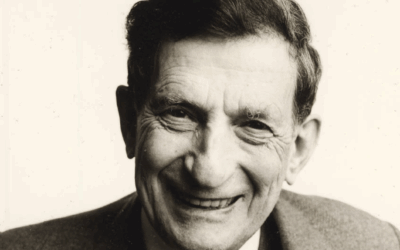

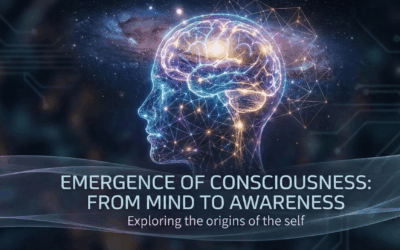

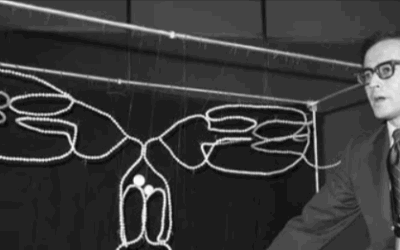

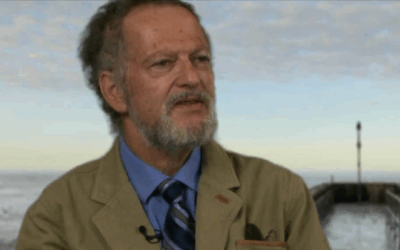

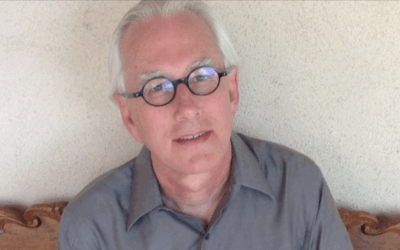

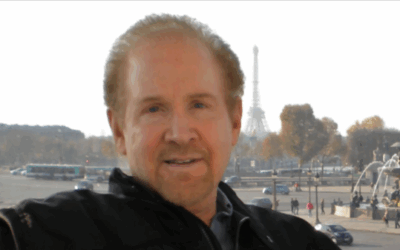


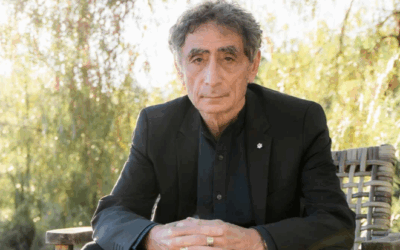

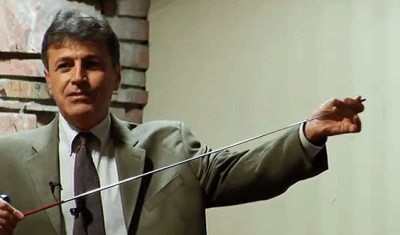

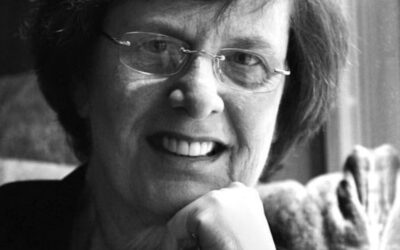



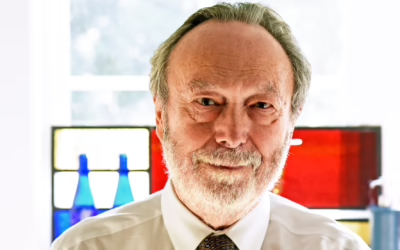
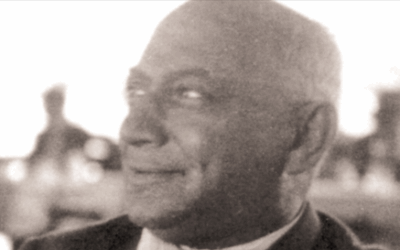
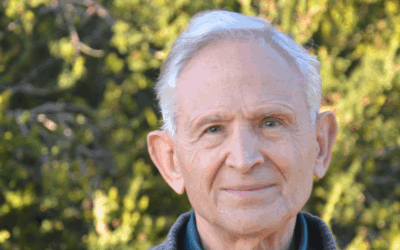
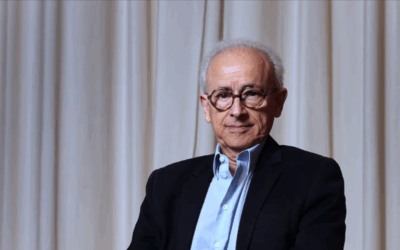
0 Comments